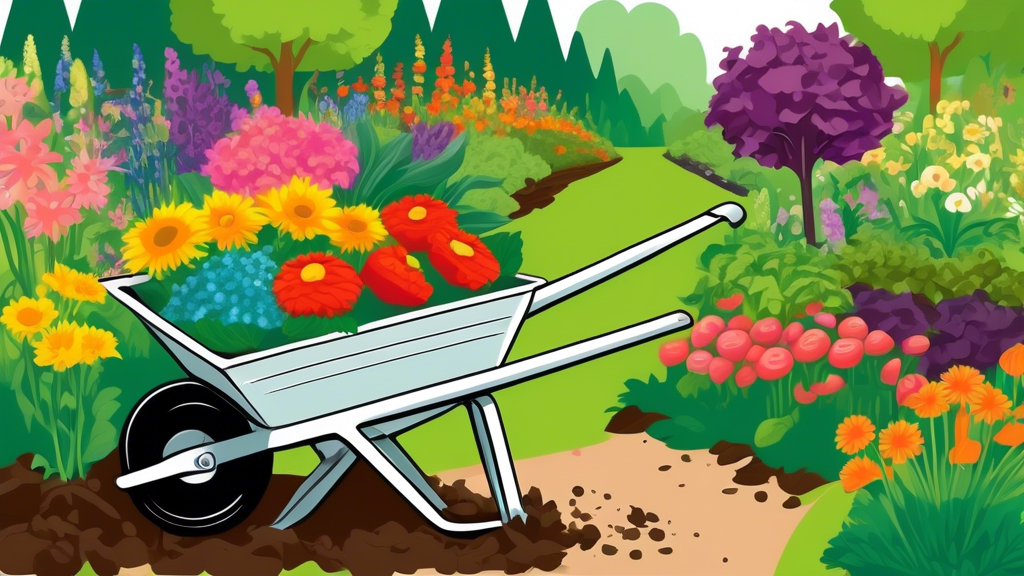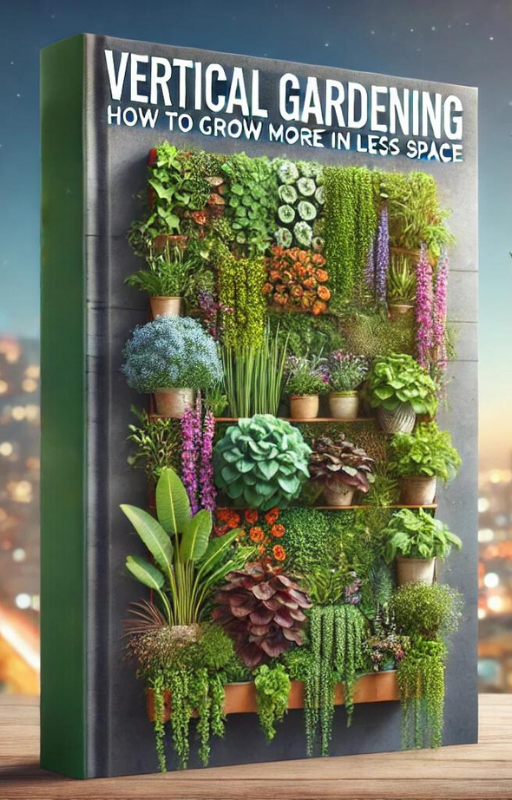Picture this: vibrant blooms bursting with color, plump tomatoes ripening in the sun, and lush, healthy foliage that would make any gardener proud. Achieving this gardening dream requires fertile soil teeming with life, and that’s where organic fertilizers step in.
Unlike their synthetic counterparts, organic fertilizers nourish your garden naturally. They’re derived from plant or animal matter, slowly releasing nutrients as they decompose and fostering a thriving ecosystem in your soil. The result? Healthier plants, tastier yields, and a more sustainable approach to gardening.
Why Choose Organic Fertilizers?
Switching to organic fertilizers is an investment in the long-term health of your garden and the planet. Here’s why:
1. Sustainable and Eco-Friendly:
Organic fertilizers are derived from renewable resources like manure, compost, and bone meal. They minimize reliance on chemical production and reduce the risk of harmful runoff that pollutes waterways.
2. Improved Soil Structure:
Unlike synthetic fertilizers that can damage soil structure over time, organic matter in organic fertilizers improves soil texture. This enhances drainage, aeration, and water retention, creating an ideal environment for root development.
3. Long-Term Nutrient Release:
Organic fertilizers break down slowly, releasing nutrients gradually over time. This provides a consistent nutrient supply for plants, reducing the risk of nutrient burn and leaching.
4. Beneficial Soil Life:
Organic fertilizers are alive with beneficial microorganisms! These microscopic helpers improve soil structure, break down organic matter, and make nutrients more accessible to plants.
5. Safer for You and Your Family:
By choosing organic, you can feel confident about the food you grow. You’ll avoid exposure to potentially harmful chemicals found in some synthetic fertilizers.
Types of Organic Fertilizers: Choosing the Right Blend for Your Garden
With a wealth of organic fertilizers available, selecting the best one for your garden can feel overwhelming. Let’s explore some popular options and their ideal uses:
1. Compost: The Black Gold of Gardening
Compost is the gold standard of organic fertilizers, often called black gold for its remarkable benefits. This nutrient-rich mixture is created by decomposing kitchen scraps, yard waste, and other organic materials.
Benefits:
- Improves soil structure, drainage, and water retention
- Provides a balanced blend of essential nutrients
- Encourages beneficial microbial activity
- Can be made at home, reducing waste and saving money
Best for:
Compost is a versatile all-purpose fertilizer suitable for nearly all garden plants, from vegetables to flowers to trees and shrubs.
2. Manure: A Nutrient-Rich Boost
Manure, a byproduct of livestock farming, is a potent source of essential plant nutrients, particularly nitrogen. However, not all manure is created equal.
Types of Manure:
- Cow Manure: Widely available and generally safe to use, cow manure is best added to the soil in the fall, allowing it to age before the growing season.
- Chicken Manure: High in nitrogen, chicken manure should be well-composted or aged before use to avoid burning plants.
- Horse Manure: A good source of organic matter and nutrients, horse manure can be composted or used as a mulch.
Best for:
Manure is excellent for heavy feeders like tomatoes, corn, and squash. Always use well-composted or aged manure to prevent the spread of pathogens.
3. Blood Meal: A Quick Nitrogen Fix
Don’t let the name fool you – blood meal is a highly effective organic fertilizer derived from dried animal blood. It’s incredibly rich in nitrogen, making it a fast-acting solution for nitrogen deficiencies.
Benefits:
- Rapidly greens up plants and promotes leafy growth
- Adds nitrogen to the soil to fuel healthy plant development
Best for:
Blood meal is ideal for giving leafy greens, lawns, and nitrogen-loving plants a quick boost. Use it sparingly and avoid direct contact with plant roots.
4. Bone Meal: A Phosphorus Powerhouse
As its name suggests, bone meal is made from finely ground animal bones, making it a rich source of phosphorus. This essential nutrient promotes strong root development, flower formation, and fruit production.
Benefits:
- Encourages healthy root systems, especially during transplanting
- Boosts flower and fruit production
- Provides a long-lasting supply of phosphorus
Best for:
Bone meal is an excellent choice for root vegetables, flowering plants, and bulbs. Mix it into the soil at planting time or use it as a top dressing.
5. Fish Emulsion: An Ocean of Nutrients
Fish emulsion, a liquid fertilizer made from fish byproducts, delivers a potent dose of nitrogen and other essential nutrients. Its strong odor might not be appealing, but your plants will thank you.
Benefits:
- Provides a fast-acting source of readily available nutrients
- Can be applied directly to the soil or as a foliar spray
Best for:
Fish emulsion is ideal for giving vegetables, flowers, and houseplants a quick nutrient boost. Dilute it according to the instructions before use.
6. Seaweed Extract: A Coastal Boost for Plants
Derived from harvested seaweed, seaweed extract is a powerhouse of micronutrients, growth hormones, and beneficial compounds. It’s like a multivitamin for your plants!
Benefits:
- Stimulates plant growth and enhances root development
- Improves plant resistance to stress, pests, and diseases
- Increases nutrient uptake and utilization
Best for:
Seaweed extract is a versatile fertilizer beneficial for all garden plants. Use it as a soil drench or foliar spray to promote overall plant health and vigor.
Applying Organic Fertilizers: Less is More
When it comes to organic fertilizers, a little goes a long way. Over-fertilizing can be just as harmful as under-fertilizing, so it’s essential to follow these tips:
1. Read the Label:
Always follow the application instructions on the fertilizer packaging. Different fertilizers have different concentrations and recommended application rates.
2. Start Slowly:
It’s better to err on the side of caution, especially when using new fertilizers. Start with a smaller amount than recommended and gradually increase it if needed.
3. Timing is Key:
Most organic fertilizers are best applied in the spring or fall, when plants are actively growing. Avoid fertilizing during periods of extreme heat or drought.
4. Water Well:
Water your plants thoroughly after applying organic fertilizers to help distribute the nutrients evenly and prevent burning.
Building Healthy Soil for a Thriving Garden
Organic fertilizers are a vital part of a holistic approach to gardening that focuses on building healthy soil. By incorporating organic matter, nurturing beneficial microbes, and providing your plants with the nutrients they need, you can create a thriving garden that rewards you with bountiful harvests and breathtaking beauty.


